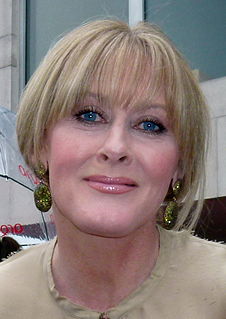A Quote by Matthew Desmond
Substandard housing was a blow to your psychological health, not only because things like dampness, mold, and overcrowding could bring about depression but also because of what living in awful conditions told you about yourself.
Related Quotes
It's awful to have a depression, but it's a great thing to have a depression mentality because it means that we are not speculating, we are not living beyond our means, we don't quit our job to take a big risk because we know we might not get another job. There is something stable about a country, a society built on those values.
I've obviously come from a health background. I was a doctor before I became a pollie and one of the things I'd like to do is to really build on the world-class health system we've got. I'm passionate about climate change because it's also a health issue. Things like extreme weather impact on people's health, the ability of our hospitals to cope, the impact on mental health, on farmers in regional areas - they're all serious health concerns.
Promotion of health generally by improving the standard of living. From the health point of view we are in this connexion first and foremost interested in the three fundamental environmental factors: housing (including family life), nutrition, and working conditions (including human relations as well as material conditions).
You must watch the pictures that you paint with your imagination. Your environment and the conditions of your life at any given time are the direct result of your own inner expectations. If you imagine dire circumstances, ill health or desperate loneliness, these will be 'automatically' materialized, for these thoughts themselves bring about the conditions that will give them a reality in physical terms. If you would have good health then you must imagine this as vividly as you fearfully imagine ill health.
Being perfect is not about that scoreboard out there. It's not about winning. It's about you and your relationship with yourself, your family and your friends. Being perfect is about being able to look your friends in the eye and know that you didn't let them down because you told them the truth. And that truth is you did everything you could. There wasn't one more thing you could've done. Can you live in that moment as best you can, with clear eyes, and love in your heart, with joy in your heart? If you can do that gentleman - you're perfect!
The evidence here, as elsewhere, suggests that education is certainly relevant, but more because better education is associated with general differences in patterns of life than because discrete parts of a lifestyle can be changed. Health-change policies which focus entirely on the individual may be ineffective not only because exposure to health risks is largely involuntary, but also, as this study has shown, because of unwarranted assumptions about the extent to which behaviour can, in these circumstances, be effective in improving health.
Nowadays it's a big issue in Europe because you are forced to describe yourself by your culture, and you begin to forget about yourself, your identity. You're supposed to act in certain ways. You're limited. When you try to go outside the lines to go into some other garden, then you're blamed and stoned because it's like blasphemy. When we talk about culture, we have to see those two sides to it. When we ignore it, it's dangerous. When we talk about it too much, it's also dangerous. We have to have a moderate balance.
I think there's strength in being honest and open about yourself and your struggles. But it can also be a challenge. This is my life, I live with my own mental health, and that is happening to me every day. I can talk about it from a position of 'Oh, I've done this' but I'm still living that existence.
"Only write what you know" is very good advice. I do my best to stick to it. I wrote about gods and dreams and America because I knew about them. And I wrote about what it's like to wander into Faerie because I knew about that. I wrote about living underneath London because I knew about that too. And I put people into the stories because I knew them: the ones with pumpkins for heads, and the serial killers with eyes for teeth, and the little chocolate people filled with raspberry cream and the rest of them.
You have a job but you don't always have job security, you have your own home but you worry about mortgage rates going up, you can just about manage but you worry about the cost of living and the quality of the local school because there is no other choice for you.rankly, not everybody in Westminster understands what it's like to live like this and some need to be told that it isn't a game.
Forgiving and being reconciled to our enemies or our loved ones are not about pretending that things are other than they are. It is not about patting one another on the back and turning a blind eye to the wrong. True reconciliation exposes the awfulness, the abuse, the hurt, the truth. It could even sometimes make things worse. It is a risky undertaking but in the end it is worthwhile, because in the end only an honest confrontation with reality can bring real healing. Superficial reconciliation can bring only superficial healing.






































